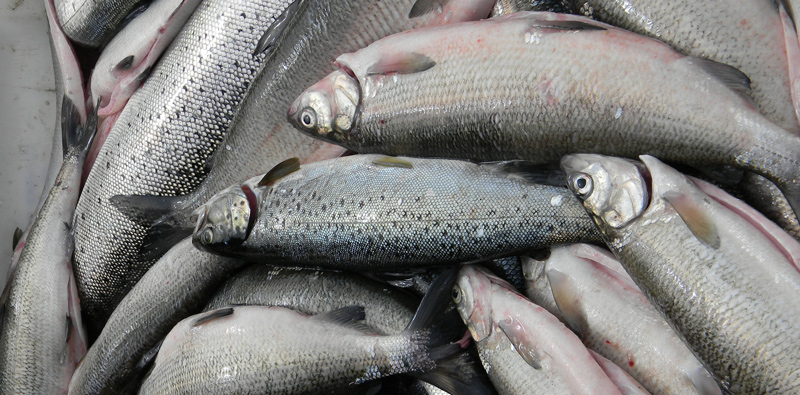Composting fish? You bet.
Jim comments:
“David the Good you are an inspiration. I am a brother gardener with similar methods but with a tenth of the knowledge and experience as you.
Since you are focusing on the wonderful world of rotting stuff I wanted to relate a recent experience to you and your fans.
We garden in Alaska and the whole composting thing is a big challenge for us. Because our average temperature is so low it literally takes years to compost material.
Last year we unfortunate had a chest freezer go bad and it sat for a week before anyone discovered the problem. It was full of red salmon fillets and buffalo meat from that we had harvested the previously.
After we cried about the 250 lbs. of rotting meat we did what a lot of coastal Alaskans have done for 100’s of years. We added the meat to the garden.
We garden in raised beds so we dug out the dirt and placed the fillets (half of a red salmon each – about 2 pounds) in the bottom of the bed. The salmon was layered in the beds about 6 inches apart over the entire bottom of the beds and covered with 10 inches of dirt. We put approximately 20+ fillets (10 whole fish) in each bed.
We planted potatoes, peas and broccoli in the beds and away we went. Luckily the bears left the beds alone and the plants prospered.
We got a bumper crop of peas and broccoli and the potatoes were the largest we have ever seen. The potatoes were the fancy purple kind and they grew 3.5 feet tall with 1” stalks.
They gave us a surprise by producing potato berries in large bunches. These berries are like large grapes. Unfortunately they were everywhere and the dog ate some and proceeded to vomit toxic berries for two days.
Lesson learned there!
So rotting stinking fish flesh worked wonderful and the plants did not show any over fertilizing problems as you would think.”
Oh heck yeah.
When life gives you ruined meat… turn it into potatoes!
In a related idea, a reader emailed me this:
“My uncle told me a planting method for the papayas in which you dig until you reach water (which here it only takes about 6 feet), refill the whole until there is no water showing, start a wood fire at the bottom of the hole, and fill the whole with organic matter.”
Another place for composting fish, perhaps?
I’ve not heard of that precise method and it sounds like a lot of digging, but it’s not all that different from the melon pits I discuss in Compost Everything. That book also contains details on how to make fish emulsion in a barrel… just in case you don’t feel like digging.
Nature composts everything… why not do the same? Composting fish really isn’t that crazy. Remember the Pilgrims and the Indians? Why have we forgotten what our ancestors knew well?
Just go for it. Giant potatoes!
*Image at top via Maarit Lundbäck. Creative commons license.


2 comments
Trivial question: Are saltwater fish more nutrient dense than freshwater fish?
I believe so but don’t know for sure.
Comments are closed.